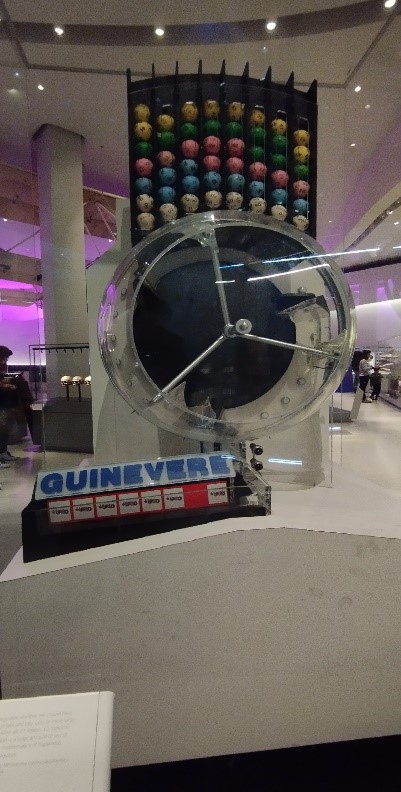GAMBLING: From dice to Guinevere
Author: Maëlys Heymann
People have been playing games of chance for a very long time. However, it was not until the 17th century that mathematics began to be used in order to understand how they work thanks to theories of probability. Today, we use probabilities in many fields such as climate science, gambling or genetics. Here, we will focus on the history of gambling. In the UK, the gambling industry is a huge business which employs great mathematicians and makes billions of pounds each year.
At the very beginning, the throw of the dice was helpful for mathematicians to work out theories of probability. As soon as they understood how probabilities worked, some machines were invented as a help for workers in the gambling industry. As a matter of fact, around 1933, the Wembley Greyhound Stadium, which hosted dog races, used the totalisator (or tote), a huge electromechanical machine, to calculate the odds (odds = p/(1-p) with p the probability of the event) for each dog in real time as gamblers placed their bets.
Then, in 1972, betting shop assistants needed the bookmaker’s settling machine to calculate what amount of winnings to give to gamblers. Betting with bookmakers is different from tote betting as bookmakers set their own odds whereas tote betting is betting from a cumulative pool of prize money. |
 Bookmakers' settling machine |
 "The Guinevere" |
At last, but not least was invented the National Lottery machine ‘Guinevere’ which is used by the UK’s National Lottery to select random numbers for the lotto. The Prime Minister John Major launched the National Lottery in 1994 when he set up the money-raising scheme and when the BBC broadcast the first weekly draws. Each week, all eyes were focused on Guinevere’s dropping balls hoping their numbers would come up. Although it was invented in 1994, we have had the technology to select random numbers for thousands of years. |
To conclude then, gambling has been useful for mathematicians to understand probabilities and a whole industry has been founded on it so that machines were in-vented to automate calculations and random selections. Today, the gambling industry makes billions of pounds each year in the UK. Actually, evolving machines for the gam-bling industry is maybe one of the most efficient ways to have mathematically perfect games of chance with equal probabilities.